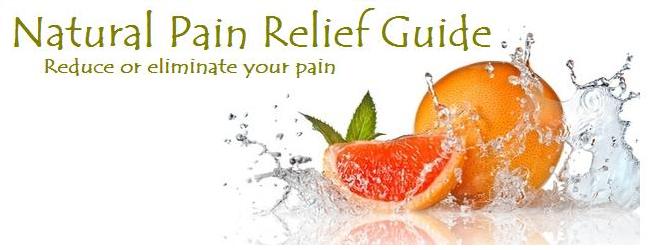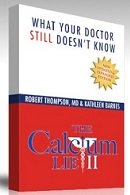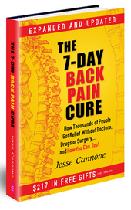|
How Many Calories Does Sitting Burn?
- The Dangers of Prolonged Sitting
"Use It or Lose It"
The question: "how many calories does sitting use?" might be of concern to a person who is hoping to lose weight. The simple answer is - not many.
There are different estimates and it will vary somewhat with the many factors that are involved but, in general, it will be about 110 calories per hour for a 70-kg (154-lb) person. If you weigh more or less just take a proportion of the 110 calorie figure.
A 60-kg person would use 110 x 60/70 = 94 calories/hour. An 80-kg person would use 110 x 80/70 = 126 calories/hour
However, there are much greater issues than just the question of how many calories does sitting use. If you are not burning enough calories because your job or lifestyle involves a lot of sitting you may be at risk for more serious problems. This page discusses some of the risks and what you can do to avoid them.
Risks
Varicose veins
stiff necks, and numbness in the legs are more common among people who sit for extended periods. Research shows that prolonged sitting can be very bad for you. It increases the likelihood of obesity, blood clots, heart attacks and even certain cancers.
The Problem
You have three times more lymphatic fluid in your body than you do blood. What is moving it? There is no pump in your lymphatic system like your heart that pumps blood. The lymph depends upon muscular movement to push it through a series of one-way valves in the lymphatic vessels. The lymphatic system is what cleanses the toxins (at the lymph nodes and other locations) from around the cells in all parts of the body.
Your circulatory system, of course, has a pump - your heart. However, inactivity can result in a slow and weak heartbeat that does not sufficiently move the blood to provide oxygen for every cell in the body.
Peter Katzmarzyk, an epidemiologist at the Pennington Biomedical Research Center, says "We've now shown for the first time that sitting is directly related to mortality." Why is prolonged sitting a problem? "Muscles seem to be extremely inactive while sitting, and this may change the way they metabolize compounds and may affect the regulation of insulin and glucose. Just getting people to stand up changes the physiology in their limbs."
The Cause
Researchers have found that a sedentary lifestyle is not just a lifestyle lacking in exercise. It can also include behaviors that promote lack of movement for extended periods. So even if you do exercise the recommended amount daily, if you also sit for hours watching TV, commuting or working at a desk you are exposed to the risks of inactivity.
When you sit for a long period of time, your blood flow can become sluggish and pool in your larger veins especially in the lower extremities. This increases the risk of blood clots within your thigh or calf. These are known as deep vein thrombosis (DVT). Close to 2 million people (mostly age 40 or older) in the U. S. develop DVT annually. Clots can travel to the lungs causing a serious and sometimes fatal pulmonary embolism. At least 200,000 people die each year from blood clots in their lungs.
Sitting requires the muscles to hold the trunk, neck and shoulders in a fixed position. This squeezes the blood vessels in the muscles reducing the blood supply to the muscles. An insufficient blood supply accelerates fatigue and increases the risk of injury. That is why athletes warm up before an event.
The heart rate and general movement in the circulatory system slows due to the decreased demand for blood while sitting. Sitting, as opposed to lying down, further decreases blood return from the lower extremities because of the increased work that must be done against gravity. This results in blood pooling in the lower legs.
Pressure on the underside of the thighs from an incorrect (too high) seat position makes this worse. This can lead to swelling or numbness and, over time, varicose veins. A reduced blood supply to the muscles accelerates feelings of fatigue. So you sit all day and then wonder why you are feeling tired.
Prevention
Stand, stretch and bend your toes. Walk around every hour or so, if possible. If you can't be getting up often, then stretch or bounce your legs, flex and extend your feet, bend your ankles from side to side and wiggle your toes. Keep your weight under control. Drink plenty of fluids to prevent dehydration. That can cause narrowing of blood vessels and blood to thicken which will further reduce circulation.
Do not cross your legs or ankles when you sit as that further restricts circulation. It is better to have both feet flat on the floor.
If you are overweight and sedentary you might be concerned about the question of how many calories does sitting burn but a greater concern should be the issue of keeping your circulation moving.
Here are some ideas of
desk exercises
you can do to avoid the effects of inactivity while working. Then you won't have to be concerned about teh question of how many calories does sitting burn. You'll be able to burn more, stay more flexible and strong and avoid fatigue.
|
Keep up to date with
valuable insights into
pain management via
a healthy lifestyle.
Receive the monthly
Natural Pain Relief
Guide Newsletter.
News articles, health
tips, specials, freebies.
Enter your email and name
in the form to the right.
|
|
|








New! Comments
Have your say about what you just read! Leave me a comment in the box below.